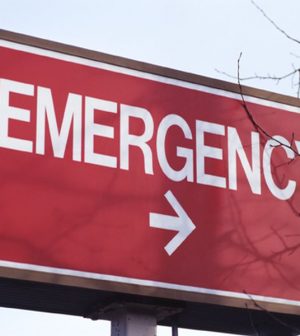- Could Your Grocery Store Meat Be Causing Recurring UTIs?
- Are You Making This Expensive Thermostat Error This Winter?
- Recognizing the Signs of Hypothyroidism
- 10 Strategies to Overcome Insomnia
- Could Artificial Sweeteners Be Aging the Brain Faster?
- Techniques for Soothing Your Nervous System
- Does the Water in Your House Smell Funny? Here’s Why
- Can a Daily Dose of Apple Cider Vinegar Actually Aid Weight Loss?
- 6 Health Beverages That Can Actually Spike Your Blood Sugar
- Treatment Options for Social Anxiety Disorder
You Can Have a Role to Play in ER Care

There are few life events more unsettling than being in a hospital emergency room. In situations that threaten life or limb, you may not have any say in your care.
But in some instances, there is time to evaluate your options.
Leaders in the field of emergency medicine have been developing initiatives, such as checklists and even apps, to help patients understand their diagnoses and be part of the decision-making process.
For instance, Chest Pain Choice, developed at the Mayo Clinic, is a one-page sheet with descriptions and graphics that allows ER patients with low-risk chest pain to discuss treatment options with their doctor.
As another example, the co-directors of the Center for Surgical Outcomes Research at Nationwide Children’s Hospital in Columbus, Ohio, who are also surgeons, found that some children with uncomplicated appendicitis could be treated with antibiotics rather than surgery. They developed the Patient Activation Tool, an iPad program for parents and kids that explains each treatment choice.
An important yet simple step that you or a loved one may be able to take in many emergency situations is to call your primary care office, let them know what’s happening, and ask for names of specialists. Your primary might need to supply medical information to the ER physician if the facilities aren’t already connected through electronic records.
According to the National Institute for Health Care Reform, communication and coordination with a patient’s primary care doctor can help ER doctors create a care plan, especially for people with complex medical histories.
You can’t predict an emergency, but you can be prepared. Find out in advance what hospital your doctors are affiliated with so that if you must call 911, you can ask if you can be taken there.
Also keep a list of your medical conditions, any medications you’re taking, and the name and number of each of your doctors to give to the paramedics responding to your call.
More information
The Patient-Centered Outcomes Research Institute has detailed information on decision-making in the ER for chest pain, which accounts for 6.5 million ER visits every year.
Source: HealthDay
Copyright © 2026 HealthDay. All rights reserved.










